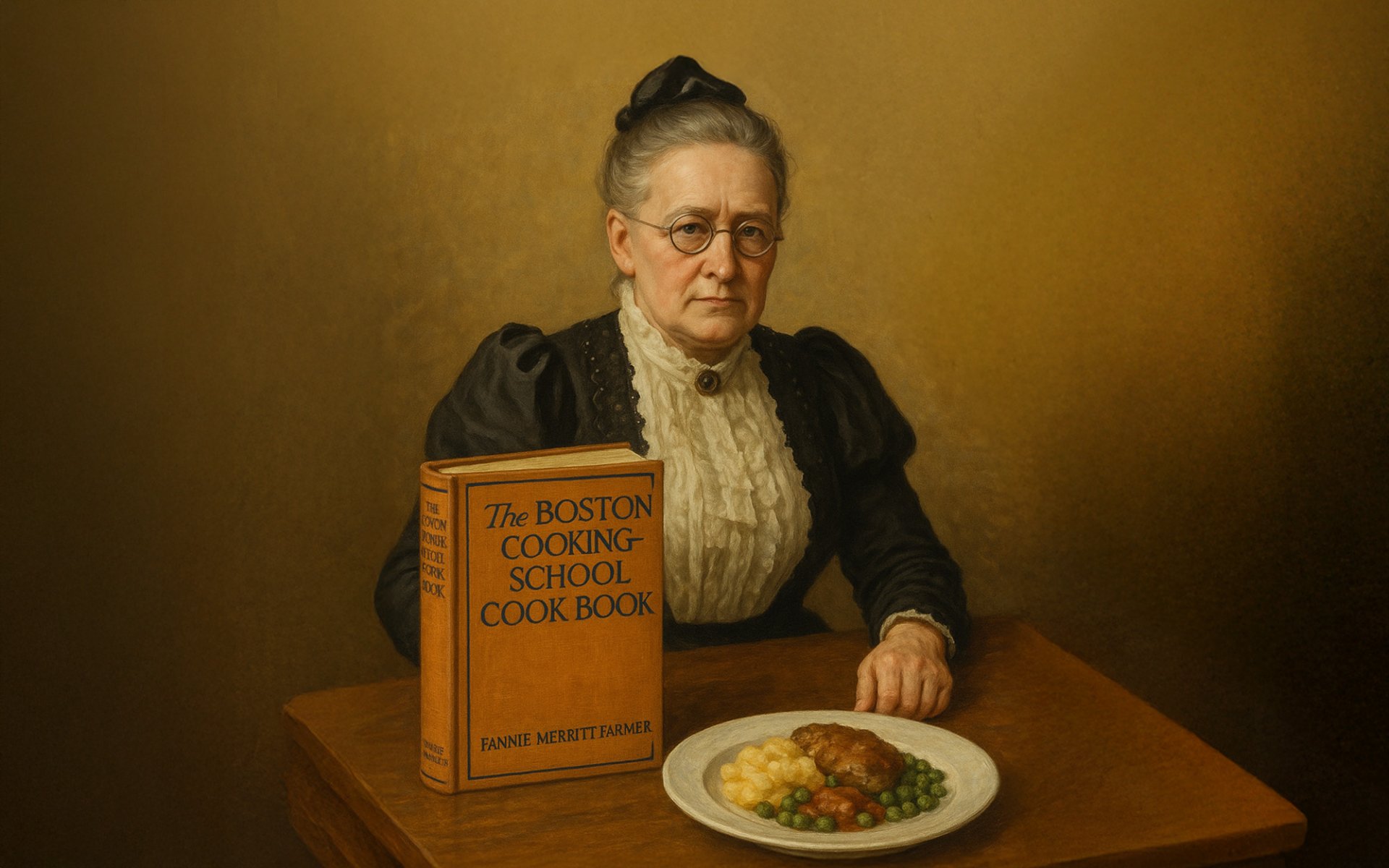Fannie Farmer

In todays world, when we open a cookbook or search for a recipe online, we find clear, precise measurements 1 cup of flour, 2 tablespoons of butter, ½ cup of milk. It feels natural to us, but in the 19th century, this was far from the norm. Recipes were vague and relied heavily on personal experience, with directions like add butter as needed, use enough flour, or bake until done.
That all changed thanks to Fannie Farmer (18571915), an American culinary expert widely known as The Woman Who Standardized Recipes. She revolutionized modern cooking by introducing standardized measuring systems into recipes, ensuring that anyone could achieve consistent results whether a professional chef or a home cook.
Fannies most influential work was The Boston Cooking-School Cook Book (first published in 1896), later known as The Fannie Farmer Cookbook, which remains one of the most famous cookbooks in American history.
From Illness to Inspiration
Fannie Merritt Farmer was born on March 23, 1857, in Boston, Massachusetts, to a middle-class family that valued education. Her parents intended for her to attend college, but at age 16, her life took an unexpected turn when she suffered a paralytic stroke possibly from polio that left her unable to walk for years.
While recovering at home, Fannie began learning to cook to help her mother, who ran a small boarding house. Her dishes quickly earned praise from guests for their flavor and quality, sparking her passion for cooking and inspiring her to pursue it professionally.
When she regained partial mobility, walking with a limp, she enrolled at the Boston Cooking School, one of the most respected culinary institutions of its time.
A Visionary Educator
After graduating, Fannies talent and teaching ability earned her a position as assistant director, and later, in 1894, she became the schools principal. She was known for her enthusiasm, clarity, and dedication to teaching, inspiring countless students with her scientific approach to cooking.
Her philosophy emphasized precision, method, and education principles that later shaped the foundation of modern culinary science.
The Cookbook That Changed Everything
In 1896, Fannie self-funded the publication of her first book, The Boston Cooking-School Cook Book, after publishers doubted its commercial success. She paid for the printing of 3,000 copies which soon sold out, turning her book into one of the best-selling cookbooks in American history.
The book contained over 1,800 recipes, covering everything from simple family meals to elaborate dishes for formal occasions. It also offered advice on household management, table etiquette, kitchen tools, and even nutrition an innovative concept for its time.
What truly set Fannies work apart was her standardization of measurements. While earlier cookbooks relied on guesswork, Fannie introduced precise terms and equipment for measuring cups, teaspoons, and tablespoons and insisted that ingredients be measured level to the rim for accuracy.
In the preface, she wrote:
Correct measurements are absolutely necessary to ensure the best results. While some may rely on experience and judgment, most need definite directions.
Her step-by-step, systematically written recipes became the template for modern cookbook formatting that we still use today.
Elevating Cooking to a Science
Fannie Farmer viewed cooking not just as a household skill, but as both an art and a science. She emphasized understanding nutrition, temperature control, and menu planning, and she even developed recipes suitable for patients and those with dietary needs a forward-thinking approach that influenced modern dietetics.
Her work laid the foundation for scientific cookery and the study of home economics in the United States.
A Lasting Legacy
The Boston Cooking-School Cook Book became one of the most influential culinary texts of all time, selling millions of copies and going through over 12 editions. During her lifetime alone, it sold more than four million copies, educating generations of American home cooks.
The books final edition edited by Fannie herself was released in 1914, the same year she passed away. After her death, it continued to be revised and reprinted under the title The Fannie Farmer Cookbook, which remains in publication today over a century later.
Fannie Farmers pioneering work not only standardized recipes but also helped transform cooking from a domestic task into a respected discipline grounded in precision, creativity, and knowledge. Her influence continues to shape kitchens around the world every time we measure a cup of flour or a tablespoon of sugar.


